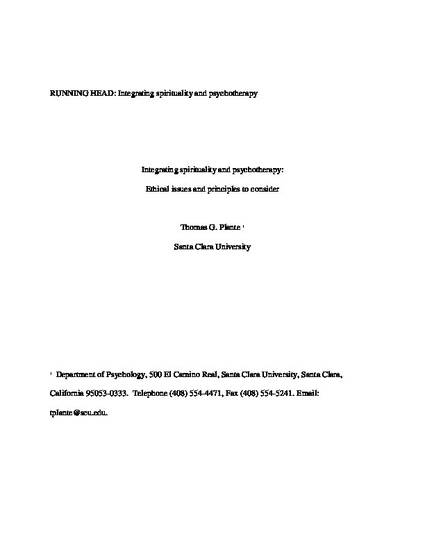
Professional and scientific psychology appears to have rediscovered spirituality and religion during recent years, with a large number of conferences, seminars, workshops, books, and special issues in major professional journals on spirituality and psychology integration. The purpose of this commentary is to highlight some of the more compelling ethical principles and issues to consider in spirituality and psychology integration with a focus on psychotherapy. This commentary will use the American Psychological Association's (2002) Ethics Code and more specifically, the RRICC model of ethics that readily applies to various mental health ethics codes across the world. The RRICC model highlights the ethical values of respect, responsibility, integrity, competence, and concern. Being thoughtful about ethical principles and possible dilemmas as well as getting appropriate training and ongoing consultation can greatly help the professional better navigate these challenging waters. © 2007 Wiley Periodicals, Inc. J Clin Psychol 63: 891–902, 2007.

This is the peer reviewed version of the following article: Plante, T. G. (2007). Integrating spirituality and psychotherapy: Ethical issues and principles to consider. Journal of Clinical Psychology, 63, 891-902, which has been published in final form at http://doi.org/10.1002/jclp.20383. This article may be used for non-commercial purposes in accordance With Wiley Terms and Conditions for self-archiving.